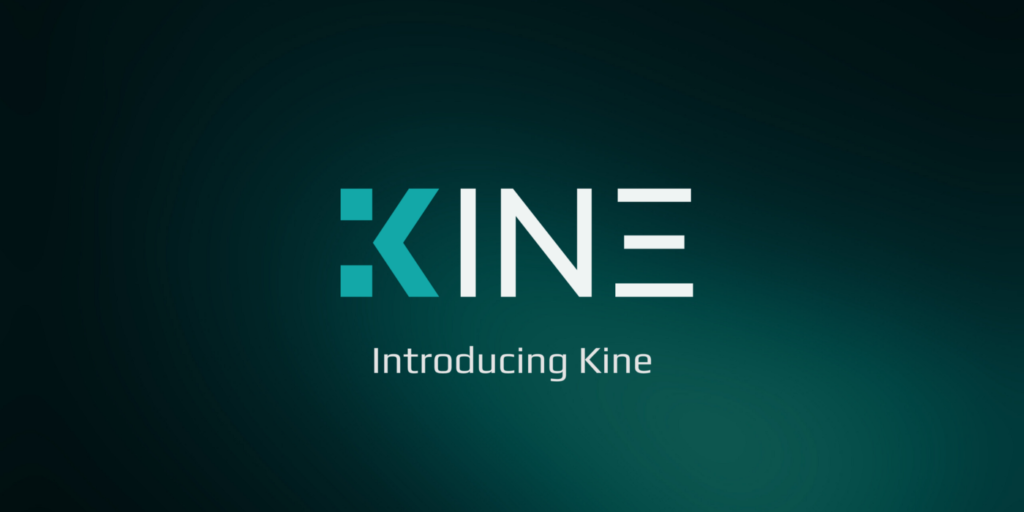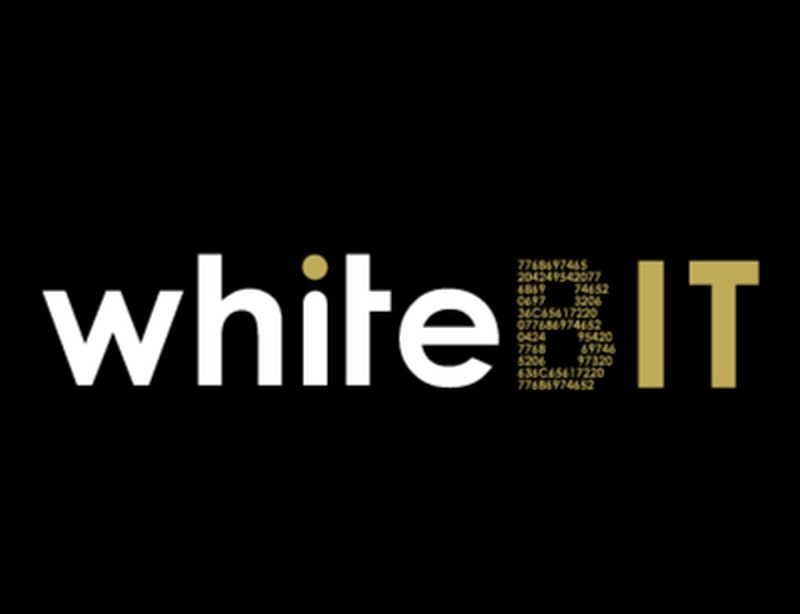After whitelist giveaway campaigns in June and July, ZKSpace, the leading zk-Rollup-based Ethereum layer-2 (L2) protocol, is set to roll out the public sale of the James Rodríguez “Zurda” nonfungible token (NFT) collection on Aug. 15, 2022. Zurda — meaning “left foot” in Spanish — is an official collection of commemorative NFTs created in collaboration with football superstar James Rodríguez to be issued on ZKSea, the NFT minting and trading platform of the ZKSpace ecosystem.
The “Zurda” NFT series is the first digital asset collection that assembles all key highlights from James Rodríguez’s illustrious football career spanning three continents.
This limited-edition NFT collection contains 1,500 pieces in four rarity levels: one Platinum, 10 Gold, 400 Silver and 1,089 Bronze. With exquisite artwork digitally hand-painted by professional artists, these digital collectibles give fans a chance to relive iconic moments and build connections with the sports influencer’s global fan community of 70 million.
James Rodríguez is one of the greatest Colombian attacking midfielders of all time. Having a magical left foot and being able to play anywhere behind the front line, he is regarded as one of the most creative players in the game. He previously played for Real Madrid, Bayern Munich and Everton FC, winning a list of honors, including two Champions Leagues, two FIFA Club World Cups and a World Cup Golden Boot.
In launching his commemorative collection, James Rodríguez has joined the likes of athletes like Cristiano Ronaldo — who previously announced his partnership with Binance — in exploring the possibilities of promoting the sport and engaging fans via the influential blockchain innovation of NFTs.
Online assets combined with physical gifts has proven to be a modern and fashionable way to bring fans closer to teams and players. The convergence of the sports industry and the exciting blockchain sub-sector NFT has also seen great success, one example being NBA Top Shot, the marketplace selling basketball video clips, generating over $230 million in sales within a year of its launch.
The different rarity tiers in the “Zurda” NFT collection attach a higher value to the rare collectibles. By selling NFTs of different undisclosed moments through mystery boxes, it also makes the buying process fun and exciting, as no one knows when or what they will own, including the tier of rarity, until a box is opened.
NFTs with digital and real-world benefits
During the public sale, the Platinum and Gold NFTs, which are based on some of the most memorable moments of Rodríguez’s career, will be offered through an auction while the Silver and Bronze NFTs will be sold through mystery boxes two days after the auction closes.
The sole Platinum and 10 Gold NFTs were inspired by a total of 11 memorable moments, including Rodríguez’s 2014 Puskas Award-winning goal. The auction will begin on Aug. 15, 2022, at 7 am UTC, on ZKSea.
The mystery box sale will go live on Aug. 17, 2022, 7 am UTC. The price of the mystery boxes is 0.15 Ether (ETH), and they contain “Zurda” NFTs in Silver and Bronze grades. Whitelisted participants will be able to purchase the mystery boxes for just 0.12 ETH.
“Zurda” NFT holders can win signed jerseys and photos that ZKSpace has disclosed on Twitter, a video call or video recorded by James Rodríguez and access to multiple events on ZKSpace, including stake-to-earn events, future NFT giveaways and the ZKSpace Football Metaverse — all in celebration of the 2022 World Cup in Qatar.
Why issue on ZKSpace?
ZKSpace — formerly ZKSwap — is a full-featured L2 protocol leveraging zk-Rollups technology to provide users with an ultra-fast, cheap and secure way to transact cryptocurrencies. ZKSwap’s version 1.0 mainnet launched in February 2021 as the first Ethereum L2 zk-Rollup-based decentralized exchange. It implements all the functions of Uniswap on L2 and solves the problems of slow transaction speeds and high gas fees on the Ethereum mainnet. So far, ZKSwap has gone through three major version iterations — ZKSwap rebranded and upgraded to ZKSpace at the end of 2021 — and has carried out hundreds of function iterations and optimizations without any security incidents.
ZKSea is the world’s first zk-Rollups-based platform supporting layer-1-to-L2 NFT mutual transferring and is the designated NFT-launch, -mint and -trade marketplace of the ZKSpace ecosystem. It is the blockchain technology partner of some prestige brands, including Coach New York, GQ Magazine, Shu Uemura, Atta and more. Moving forward, ZKSea will feature some exclusive NFT drops aside from the James Rodríguez commemorative-edition NFT collection, proving a popular alternative to L1 marketplaces and allowing more people to get involved in NFTs.
For new users looking to be a part of the NFT movement, ZKSpace also features a user-friendly fiat on-ramp, boosting usability and democratizing access to the exciting future of NFTs for anyone worldwide.
Valuable physical collectibles — from precious stones to baseball cards — have always been highly sought after. While the digital age has reduced some transactional friction in collectibles marketplaces, the resulting gains for collectors have been heavily diluted by the high fees of e-commerce behemoths. Combined with shipping risks and potential for fraud, these barriers have held the collectibles market back from truly explosive growth.
Now, a new Solana-based project called Collector is stepping in to innovate, with a plan to save collectors billions of dollars by transforming the way they engage with their prized collections and each other.
Collector’s digital marketplace leverages blockchain technologies to weave a flexible, global network of vaulting and grading partners. Collector’s beta program rolls out to eager users this month ahead of its official launch for graded trading cards in 2022’s fourth quarter. Learn more about this opportunity here, along with information about exclusive ambassadorships for avid card collectors.
For collectors paying 10-to-15% fees to bite their nails during the tense shipping process, this new platform is a cause for celebration; Collector promises to reduce trading risks significantly and cut fees by as much as 95%. And for investors more familiar with the digital world of stocks and cryptocurrencies, this new way of trading collectibles makes for a more enticing investment than ever before.
So, just how big is the online collectibles market?
The card dealers
The market for collectibles is contested by the largest marketplaces on the web. Ebay, a top site for collectibles traders, reported 20 million new listings for trading cards in 2021’s first quarter, contributing around $1 billion in merchandising volume in that period.
PWCC, another major player, offers vaulting and marketplace services, especially for graded cards. It currently holds over 500,000 items in its vault.
Alt is a newer entrant to the vaulting scene, raising $75 million in funds late last year. Like PWCC, Alt offers storage and marketplace services to users in addition to loans collateralized by vaulted assets.
But there are some fundamental problems in the current system. For example, individual sellers on eBay can pay as much as 13.4% on their sales — not including other fixed listing fees. And even with such high fees, users still must navigate fake listings and fraudsters. Both PWCC and Alt provide a safer experience for collectors than eBay but still lack truly global reach. eBay has also opened its own vault to compete with plans to hold $3 billion in assets in a few years.
The solution to a $50 billion problem
Collector is thinking one step ahead by developing a Solana-based system that integrates physical vaults from around the world into a decentralized, token-enhanced marketplace offering near-instant transaction settlement on a global scale.
The blockchain primitives that Collector is developing include a physical-to-digital bridge, decentralized marketplace and collateralized lending protocols. Derived from now-ubiquitous nonfungible tokens (NFTs), Collector has dubbed the digital tokens powering its platform “pNFTs” to represent their physical-to-digital nature, as each token is inextricably linked to the physical item it represents.
Collector is also launching a native digital asset named COLL, which unlocks features like animated pNFT galleries and fee discounts. With COLL, users can pay fees as low as 0.5% — a 95% reduction compared to eBay. For investors seeking exposure to collectibles, liquid pNFT marketplaces create a unique opportunity to safely accumulate these assets.
Orion Depp, managing partner at Master Ventures Investment Management, shares this view: “Very few NFT projects have figured out how to accrue value for their tokens. Move-to-earn-industry leader Stepn (GMT) is one example of a successful project deriving value from real-world activity. Collector could be a similar, highly asymmetric opportunity, as it capitalizes on the massive $700 billion collectibles sub-sector while offering a marketplace experience similar to OpenSea or Solana’s Magic Eden.”
Unlike competitors, Collector is building a decentralized marketplace right from the start, with an ambitious roadmap to build a global network of trusted vault and grading partners. Collector’s token-incentivized ecosystem puts the community first and gives them control over the platform’s future.
About Collector
Collector is transforming the collectibles market by integrating physical ownership with Web3-powered digital marketplaces built on Solana. This means significantly less time, fraud, risk and fees than what millions of collectors currently experience while transacting trillions of dollars annually worldwide.
Collector’s native token COLL is distributed as a reward and unlocks the platform’s full potential. This includes discounts, premium features and governance rights.
To learn more about Collector, visit collectorcrypt.com. To become a beta tester and future ambassador, jump directly to collectorcrypt.com/betapr.
Dog-themed cryptocurrencies jumped on Monday as broader retail-investor enthusiasm hit the market, particularly as Ethereum works towards its much-anticipated software upgrade.
Dogecoin is up about 14 per cent over the past five days, while Shiba Inu has gained almost 40 per cent, according to pricing data compiled by Bloomberg. The meme tokens are holding their gains even as Bitcoin hovers around $25,000 and Ether is at about $2,000 amid optimism surrounding its upgrade, known as merge, now expected about September 15.
“Dogecoin and Shiba Inu have both broken out over the weekend, clear evidence that the retail investor is back,” said Hayden Hughes, chief executive of social-trading platform Alpha Impact.
There is optimism that both coins will gain as Ethereum did because both are due for upgrades as well, he said.
The crypto market has shown some signs of recovery with its total market cap now at about $1.2 trillion, after having dropped to about $875 billion as of June 19, according to data from CoinGecko.
Lower-than-expected inflation prints out of the US last week boosted hopes that the Federal Reserve might be able to ease off its pace of rate increases, helping riskier assets like crypto.
Ethereum has also been supported after a final test stage before the merge upgrade, which co-founder Vitalik Buterin estimates will occur by about the middle of next month.
Still, not everyone is all-in on the memecoin trend just yet.
“These coins don’t have the depth of market at times like Ether or Bitcoin, so when a bit of demand comes through, they hit a liquidity pocket and fly up, drawing in more speculators,” said Cici Lu, chief executive officer at consulting company Venn Link Partners.
Alpha Impact’s Mr Hughes also sounded a note of caution about the rally.
Great news for Zoomex in terms of new partnerships. Recently, Zoomex has teamed with Villarreal CF, where they have achieved a deal for the cryptocurrency trading platform to become the Official Crypto Exchange Partner for the Yellow Submarine for the rest of the season. In other words, the Zoomex logo will be prominently displayed throughout the 2022-2023 season, including on the back of the men’s first team’s uniforms.
What did Zoomex plan for its community
Because Zoomex has teamed with Villarreal CF, the company is giving away over 200 more tickets to fans so they may see Villarreal CF play live in Spain. A teaser campaign has recently been introduced, and people may participate by making guesses to win tickets.
Later this week, the winners will be announced on the company’s Twitter page. The most recent promotion is the International Beer Festival Campaign, and consumers may submit a claim for their weekly allotment of USD 8 in beer cash. In addition, a significant marketing initiative titled “Sharing USD 100,000 Cash” will be rolled out to celebrate the collaboration. Simply sign in to your Zoomex account and keep up with the most recent happenings!
What is Zoomex?
The Zoomex exchange is a cryptocurrency trading platform that uses cutting-edge blockchain technology.
Zoomex wants to set itself apart from the competition by being known as a company that prioritizes its consumers and offers the highest possible level of protection for their possessions. Zoomex was established in 2021 and has since catered to more than a million crypto customers. The company has had great development over the course of the last year and is now ranked among the top derivatives exchanges on the CoinMarketCap.
“As a young and fast-growing company, we are more than thrilled to partner with Villarreal CF in this special season to celebrate the club’s centenary. Zoomex and Villarreal CF share the same passion for being a benchmark in the industry. This deal brings us an opportunity to narrate the future of the crypto ecosystem to world football fans who never settle for the status quo and believe in faith,” said Amos.Z, founder of Zoomex.
The Zoomex advantages
Zoomex ensures that its clients’ assets will remain secure by developing a trading environment with a one-of-a-kind security mechanism. The confidence of the platform’s users is put first, and the platform itself assures that the exchange will always operate honestly and openly. In addition, it protects the clients’ funds by using the most advanced multi-signature security system and cold and hot wallet systems.
Even when the market shifts, Zoomex maintains its position as the industry leader in the financial sector. Trading in perpetual contracts for USDT as well as perpetual inverse contracts is supported. Customers have access to a wide range of trading settings thanks to the company’s support for over 50 different trading pairs for alternative cryptocurrencies, among which are trading pairs for USDT and BTC.
Depositing and withdrawing funds is possible around the clock on the Zoomex platform, contributing to the trading environment’s user-friendliness. Trading conditions are improved as a result of the fact that they are able to deposit and withdraw their assets at any time they want.
Aug. 12, 2022 — Kine Protocol has announced a zero-fee trading promotion for all users after its recent user experience upgrade completion. Meanwhile, the Cointelegraph-and-Kine Ask-Me-Anything event was held as scheduled, where Lei, CEO of Kine, explained the motivation of this decision and the vision of future decentralized finance (DeFi) standards.
What is Kine and why is it special compared to other DEXs?
Kine Protocol introduces the best trading experience in all aspects, including liquidity, capital efficiency, costs and speed to all derivative traders benefiting from its peer-to-pool liquidity model and hybrid infrastructure design.
Kine is about trading derivatives in a simple and secure way — a derivative decentralized exchange (DEX) with the highest leverage and the lowest cost.
Kine is a leading DEX delivering a fast, transparent and effortless way to trade derivatives on the Ethereum, BNB Smart Chain, Polygon and Avalanche chains. Kine’s protocol adapts a peer-to-pool liquidity model that ensures unlimited liquidity and low slippage. The liquidity pool allows traders to open and close derivatives positions according to trusted price feeds, avoiding the need for active market-making. The hybrid infrastructure design ensures even superior efficiency over most centralized exchanges.
Main features:
- Kine is the first DEX to support 100-fold leverage.
- Kine is currently ranked the third DEX on CoinMarketCap.
- A more flexible position management feature allows users to hold multiple positions on the same asset and manage them separately.
- Kine’s copy-trading feature is an educational tool for new traders to observe, follow and learn from professional trading strategies.
What is the meaning behind the zero-fee promotion?
The competition between DeFi and centralized finance lies in the aspects of cost, efficiency, user experience, security and transparency.
“I believe users do not choose between concepts but simply go for the best product that does better in all [the] above aspects. DeFi has natural advantages in security and transparency but normally doesn’t do well in the rest,” Lei said.
With the recent completion of the users’ experience upgrade, Kine has made significant improvements in efficiency and user experience. “The increased number of active users and their feedback has given us confidence that we are on the road to victory. Now, we are ready to tick the last box cost and bring the competition to a new level. This is the main drive for the zero-fee promotion,” Lei said.
Where does Kine’s roadmap lead to in the Web3 journey?
Although the project is still in the early stages of development, Kine has completed several milestones with the app for user experience in-line with a brand concept of guiding more people to learn and benefit from the DeFi world more flexibly.
The development of Web3 is changing rapidly. As one of the DEXs in the space, KINE pursues a high degree of decentralized product and innovation insight to speed up the process of the journey. From Kine’s Kickstarter project, a launchpad, to a nonfungible token marketplace, every detail consistently expresses the core of DeFi to include more who believe in Web3 and let everyone redefine and enjoy DeFi in their own way.
Learn more about Kine:
Official website | Twitter | Telegram | Discord
For business cooperation, please contact prm@kine.io or marketing@kine.io.
WhiteBIT has Ukrainian origin and is now one of the biggest cryptocurrency exchanges in Europe. The platform recently shared plans to launch its own digital asset, WhiteBIT Token (WBT). The token will provide the users with unique opportunities like fee reduction, holding benefits and much more.
WhiteBIT has been giving its users striking announcements since the beginning of its largescale market expansion. Just a month ago, the platform completed its functionality with perpetual futures trading, becoming one of the few crypto exchanges in the world that offer such a possibility. Now, WhiteBIT is planning to launch its own token, which seems a natural step for an exchange of this level.
Here are the main facts to know about WBT:
- It will have a limited supply.
- The token design presupposes organic interactions with other projects of the ecosystem.
- WBT ownership promises various bonuses to tokenholders.
- The token will have a weekly burning mechanism.
The asset will be issued in the amount of 400 million WBT, with 200 million as treasury tokens. This amount will be distributed to corresponding funds inside the ecosystem to protect the asset from inflation. Treasury tokens will be gradually unlocked within the following three years. Half of the issued tokens will be frozen and brought to the market according to the pre-designed schedule.
WhiteBIT users will be able to enjoy numerous benefits from owning and holding WBT. The exchange plans to hold profitable activities, trading competitions and bounties to prove the effectiveness of the new asset and build a community around it. Here are some of the advantages for WBT holders and owners to enjoy:
- A 40-50% increase in the referral rate
- Reduced fees
- Free ERC-20-protocol token withdrawals
- Free Anti-Money Laundering checks and much more.
Being an in-house token, WhiteBIT Token will gradually expand the scope of its possibilities available to platform users. Learn more about WBT on the official WhiteBIT platform.
Volodymyr Nosov, WhiteBIT CEO, said, “WhiteBIT Token is the implementation of a long-cherished idea of a truly effective token designed to give the best to users. Smooth interoperation of all WhiteBIT ecosystem products, generous fee reduction, increased rates for the referral program, and much more, are only [some] of the prospects this asset entails.”
Follow Crypto Intelligence on Google News to never miss a story
As the financial world appears to have fallen out of love with bitcoin, the Channel Islands – a string of small British overseas territories – are quietly offering crypto investors incentives to move their money from more traditional tax havens.
Jersey and Guernsey – located off the French coast – are attracting crypto, blockchain, and other fintech firms thanks to their favorable tax laws.
Neither island has capital gains or inheritance tax, making them attractive locations for investment firms.
And even before crypto entered the mainstream, both islands had started competing for the booming asset class. Edmund Hatton, a fintech lead at Digital Jersey, said he first noticed clients discussing bitcoin and crypto back in 2011.
Jersey has attracted firms including CoinShares, which manages assets worth around $3 billion. The Swiss-based group used Jersey to establish its crypto-backed Physical Bitcoin exchange-traded product in January 2021.
Meanwhile, Guernsey Finance’s chief executive made a recent trip to Miami, which has established itself as one of the US’s best-known crypto hubs.
It’s part of an effort to lure western crypto investors to the island and away from rival tax havens like the Cayman Islands, according to Barney Lewis, a Guernsey-based fund manager at the investment firm ZEDRA.
“We’re competing directly against Cayman, and we’re seeing the migration of US funds out of there,” he told Insider. “Brazilian and South American investors have fallen out of love with Cayman, and are moving capital to Guernsey.”
The Channel Islands’ push to lure crypto investors has coincided with a widespread retreat from digital assets over the last nine or 10 months.
Bitcoin has plunged 49.7% to just under $24,000 so far in 2022, while fellow large-cap token ethereum has slid 49.8% to below $1,900 – a far cry from their respective all-time highs of $69,000 and $4,867 less than a year ago.
Stocks have also plummeted in 2022, meaning that traditional investors are starting to doubt crypto’s effectiveness as a potential portfolio diversifier, particularly as consumer inflation has rampaged to multi-year highs around the world.
“Six months ago, you’d see portfolios with traditional equity, fixed income, and then maybe 2.5 to 5% crypto as an inflation hedge,” Lewis said. “But it looks like a terrible inflation hedge now.”
Follow Crypto Intelligence on Google News to never miss a story
After whitelist giveaway campaigns in June and July, ZKSpace, the leading zk-Rollup-based Ethereum layer-2 (L2) protocol, is set to roll out the public sale of the James Rodríguez “Zurda” nonfungible token (NFT) collection on Aug. 15, 2022. Zurda — meaning “left foot” in Spanish — is an official collection of commemorative NFTs created in collaboration with football superstar James Rodríguez to be issued on ZKSea, the NFT minting and trading platform of the ZKSpace ecosystem.
The “Zurda” NFT series is the first digital asset collection that assembles all key highlights from James Rodríguez’s illustrious football career spanning three continents.
This limited-edition NFT collection contains 1,500 pieces in four rarity levels: one Platinum, 10 Gold, 400 Silver and 1,089 Bronze. With exquisite artwork digitally hand-painted by professional artists, these digital collectibles give fans a chance to relive iconic moments and build connections with the sports influencer’s global fan community of 70 million.
James Rodríguez is one of the greatest Colombian attacking midfielders of all time. Having a magical left foot and being able to play anywhere behind the front line, he is regarded as one of the most creative players in the game. He previously played for Real Madrid, Bayern Munich and Everton FC, winning a list of honors, including two Champions Leagues, two FIFA Club World Cups and a World Cup Golden Boot.
In launching his commemorative collection, James Rodríguez has joined the likes of athletes like Cristiano Ronaldo — who previously announced his partnership with Binance — in exploring the possibilities of promoting the sport and engaging fans via the influential blockchain innovation of NFTs.
Online assets combined with physical gifts has proven to be a modern and fashionable way to bring fans closer to teams and players. The convergence of the sports industry and the exciting blockchain sub-sector NFT has also seen great success, one example being NBA Top Shot, the marketplace selling basketball video clips, generating over $230 million in sales within a year of its launch.
The different rarity tiers in the “Zurda” NFT collection attach a higher value to the rare collectibles. By selling NFTs of different undisclosed moments through mystery boxes, it also makes the buying process fun and exciting, as no one knows when or what they will own, including the tier of rarity, until a box is opened.
NFTs with digital and real-world benefits
During the public sale, the Platinum and Gold NFTs, which are based on some of the most memorable moments of Rodríguez’s career, will be offered through an auction while the Silver and Bronze NFTs will be sold through mystery boxes two days after the auction closes.
The sole Platinum and 10 Gold NFTs were inspired by a total of 11 memorable moments, including Rodríguez’s 2014 Puskas Award-winning goal. The auction will begin on Aug. 15, 2022, at 7 am UTC, on ZKSea.
The mystery box sale will go live on Aug. 17, 2022, 7 am UTC. The price of the mystery boxes is 0.15 Ether (ETH), and they contain “Zurda” NFTs in Silver and Bronze grades. Whitelisted participants will be able to purchase the mystery boxes for just 0.12 ETH.
“Zurda” NFT holders can win signed jerseys and photos that ZKSpace has disclosed on Twitter, a video call or video recorded by James Rodríguez and access to multiple events on ZKSpace, including stake-to-earn events, future NFT giveaways and the ZKSpace Football Metaverse — all in celebration of the 2022 World Cup in Qatar.
Why issue on ZKSpace?
ZKSpace — formerly ZKSwap — is a full-featured L2 protocol leveraging zk-Rollups technology to provide users with an ultra-fast, cheap and secure way to transact cryptocurrencies. ZKSwap’s version 1.0 mainnet launched in February 2021 as the first Ethereum L2 zk-Rollup-based decentralized exchange.
It implements all the functions of Uniswap on L2 and solves the problems of slow transaction speeds and high gas fees on the Ethereum mainnet. So far, ZKSwap has gone through three major version iterations — ZKSwap rebranded and upgraded to ZKSpace at the end of 2021 — and has carried out hundreds of function iterations and optimizations without any security incidents.
ZKSea is the world’s first zk-Rollups-based platform supporting layer-1-to-L2 NFT mutual transferring and is the designated NFT-launch, -mint and -trade marketplace of the ZKSpace ecosystem. It is the blockchain technology partner of some prestige brands, including Coach New York, GQ Magazine, Shu Uemura, Atta and more. Moving forward, ZKSea will feature some exclusive NFT drops aside from the James Rodríguez commemorative-edition NFT collection, proving a popular alternative to L1 marketplaces and allowing more people to get involved in NFTs.
For new users looking to be a part of the NFT movement, ZKSpace also features a user-friendly fiat on-ramp, boosting usability and democratizing access to the exciting future of NFTs for anyone worldwide.
The Netherlands Crime Agency (FIOD) said it arrested a 29-year-old who is a suspected developer of Tornado Cash, the crypto mixer that was slapped with US sanctions earlier this week.
The platform, which mixes cryptocurrencies into the decentralized ethereum network and hides the origin of users’ tokens, was prohibited from operating in the United States earlier this week after the US Treasury said North Korean hackers had been using the service for money laundering.
US Treasury officials say the platform has laundered around $7 billion in crypto, and an analysis by TRM Labs shows North Korean hackers are responsible for $1 billion of the laundered funds.
Regulators did not name the suspect, but said he was detained on Wednesday and will be presented to a judge today in the Netherlands for helping money laundering and concealing other criminal financial activity on Tornado Cash’s platform.
“Multiple arrests are not ruled out. These advanced technologies, such as decentralised organisations that may facilitate money laundering are receiving extra attention from the FIOD,” regulators said in a statement.
The sanctions on Tornado Cash are the latest development as regulators crack down on the crypto industry and turn the screws on decentralized finance firms. 2022 has seen a wave of high profile crypto hacks and cyberthefts.
Earlier this year, North Korean hackers stole $625 million in cryptocurrency from Axie’s Infinity Ronin Network, one of the largest thefts in history of the blockchain. Another $100 million was stolen from Harmony Bridge – with evidence that 98% of those funds were later laundered through Tornado Cash, according to an analysis from Elliptic.
Follow Crypto Intelligence on Google News to never miss a story
The Blockchain Associations Forum, dubbed the “United Nations” of blockchain, is hosting its virtual second annual summit on Sept. 17 with the theme “cryptoassets, national policies and the future of global economy.” The summit will be chaired and hosted by The British Blockchain Association.
Blockchain Associations Forum (BAF) is a neutral, transnational, decentralized harmonization forum comprising 53 blockchain and digital asset associations from 46 countries across six continents.
With the aim to foster nations’ collective wisdom, BAF is a unique, interdisciplinary platform committed to debating emerging trends, discussing common pressing issues and exploring solutions for the many challenges that the industry faces.
Some of the confirmed keynotes, guest speakers and session chairs include:
- Senator Andrew Bragg from the Government of Australia
- Caroline Pham of the United States Commodity Futures Trading Commission
- Chris Holmes from Richmond MBE FBBA from the United Kingdom House of Lords
- Naseem Naqvi and barrister Racheal Muldoon from the British Blockchain Association
- Caroline Malcolm from Chainalysis
- David Lee from Global FinTech Institute in Singapore
- Markus Lehtonen from Helsinki Blockchain Center
- Koleya Karringten from Canadian Blockchain Consortium
- Tom Duff Gordon from Coinbase
- Senator Ihenyen from Siban Nigeria
- Juan Zaballos from Alastria
- Stephen Macaskill from BlockchainNZ
- Asih Karnengsih from Asosiasi Blockchain Indonesia
- Tasos Oureilidis from Hellenic Blockchain Association
BAF held its inaugural summit in 2021 with representation from 45 participating countries and the heads of their national and regional blockchain associations.
Only 30 tickets remain for members of the public to register.
To sponsor the summit, contact the BBA or its deputy secretary Brian Scudder.
British Blockchain Association
Established in 2017, British Blockchain Association is the world’s leading industry body advancing evidence-based adoption of distributed ledger technologies. BBA has authored the U.K.’s National Blockchain Roadmap and is home to the Journal of The British Blockchain Association, the Center for Evidence-Based Blockchain, The Blockchain Associations Forum, BBA Fellowships, Blockchain International Scientific Conferences and other world-class blockchain initiatives. BBA also has its headquarters in the Metaverse.













